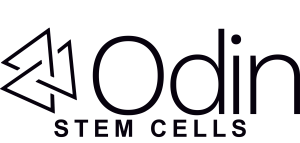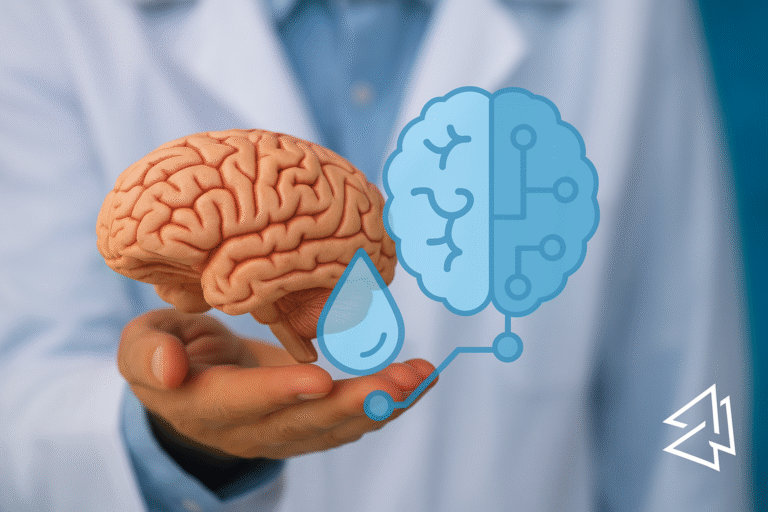Each year, millions of people around the world experience a stroke—an event that can leave lasting physical, emotional, and cognitive impairments. Despite advances in emergency care, long-term treatment options for stroke survivors remain limited. However, regenerative medicine is offering new hope, especially through mesenchymal stem cells (MSCs) and their exosomes.
Recent research is shedding light on how these powerful cellular therapies may help restore brain function, reduce inflammation, and even promote tissue repair following a stroke.
What Are MSCs and Why Do They Matter?
Mesenchymal stem cells are multipotent stromal cells that can differentiate into various tissue types—such as bone, cartilage, and fat—but their true therapeutic power lies in their secretome: a potent cocktail of growth factors, cytokines, and extracellular vesicles, including exosomes.
When administered—most often intravenously—MSCs don’t necessarily replace damaged neurons. Instead, they act more like biological messengers, stimulating the body’s own repair processes through paracrine signaling. This unique mechanism makes them especially promising in neurological recovery, including post-stroke rehabilitation.
Groundbreaking Studies on MSCs for Stroke Recovery
Recent clinical studies and meta-analyses have provided growing evidence that MSC therapy can lead to measurable improvements in stroke patients:
✔️ Meta-Analysis of Nine RCTs (2024)
A review of 316 patients treated with MSCs after acute ischemic stroke showed significant improvements on the NIH Stroke Scale (NIHSS), with no increase in adverse events. Patients also showed better functional outcomes compared to control groups.
✔️ Frontiers in Stroke Review (2024)
In this analysis of randomized controlled trials, stroke patients receiving intravenous MSC infusions experienced marked improvements on the modified Rankin Scale (mRS) and Barthel Index (BI)—two gold standards for evaluating functional independence after stroke.
✔️ Neurology Asia Review (2023)
Compared to mononuclear stem cells, MSCs produced more durable improvements, including enhanced motor scores at two-year follow-up and structural brain improvements seen on MRI scans.
The Exosome Advantage: Small Vesicles, Big Potential
While MSCs are powerful, their exosomes—tiny extracellular vesicles packed with proteins, mRNA, and microRNAs—are emerging as an equally promising, cell-free alternative. Think of exosomes as the body’s own nanoscale delivery system for healing instructions.
🧪 Preclinical Research on Hypoxia-Treated Exosomes (2024)
A study published in Molecular Neurobiology found that exosomes derived from hypoxia-conditioned MSCs improved behavioral function and reduced brain infarct size in a mouse model. These effects were linked to the miR-214-3p/PTEN pathway, a key regulator of cell survival and neuroplasticity.
🧬 Current Clinical Trial (NCT03384433)
An ongoing Phase 1/2 trial is investigating allogenic MSC-derived exosomes for acute ischemic stroke patients. The goal: evaluate improvements in neurological function and long-term disability, with results expected to validate their use as a scalable, off-the-shelf therapy.
How Do MSCs and Exosomes Help Stroke Recovery?
These therapies work on several fronts:
- 🧠 Neuroprotection – Preventing further neuronal death by reducing oxidative stress and inflammation
- 💉 Angiogenesis – Stimulating new blood vessel growth to restore oxygen-rich blood flow
- 🧬 Neurogenesis – Encouraging the formation of new neural connections
- 🔄 Immunomodulation – Creating a balanced immune response to promote healing without triggering autoimmunity
Final Thoughts: Hope on the Horizon
The road to recovery after a stroke can be long and uncertain. But with the rise of MSC and exosome-based therapies, we are entering a new chapter in stroke treatment—one where healing from within becomes not only possible but increasingly measurable.
While these therapies are still undergoing clinical validation, early data suggest that they could redefine rehabilitation for stroke survivors, offering new hope where traditional medicine may fall short.
If you or a loved one is exploring innovative options for stroke recovery, keep an eye on this space. The science is advancing—and with it, the potential for life after stroke is evolving, too.
📚 Sources
- BMC Neurology (2024). “Mesenchymal stem cell therapy for acute ischemic stroke: a systematic review and meta-analysis of randomized controlled trials.” Link
- Frontiers in Stroke (2024). “Efficacy and Safety of Mesenchymal Stem Cell Therapy for Ischemic Stroke: A Meta-analysis of Randomized Controlled Trials.” Link
- Neurology Asia (2023). “Comparison of mononuclear and mesenchymal stem cell therapy for ischemic stroke: A systematic review.” PDF
- Molecular Neurobiology (2024). “Hypoxia-Preconditioned MSC-Derived Exosomes Attenuate Ischemic Stroke Injury Through miR-214/PTEN Pathway.” Link
- Clinical Trial (NCT03384433). “Safety and Efficacy of MSC-Derived Exosomes in Patients With Acute Ischemic Stroke.” Trial Registry

